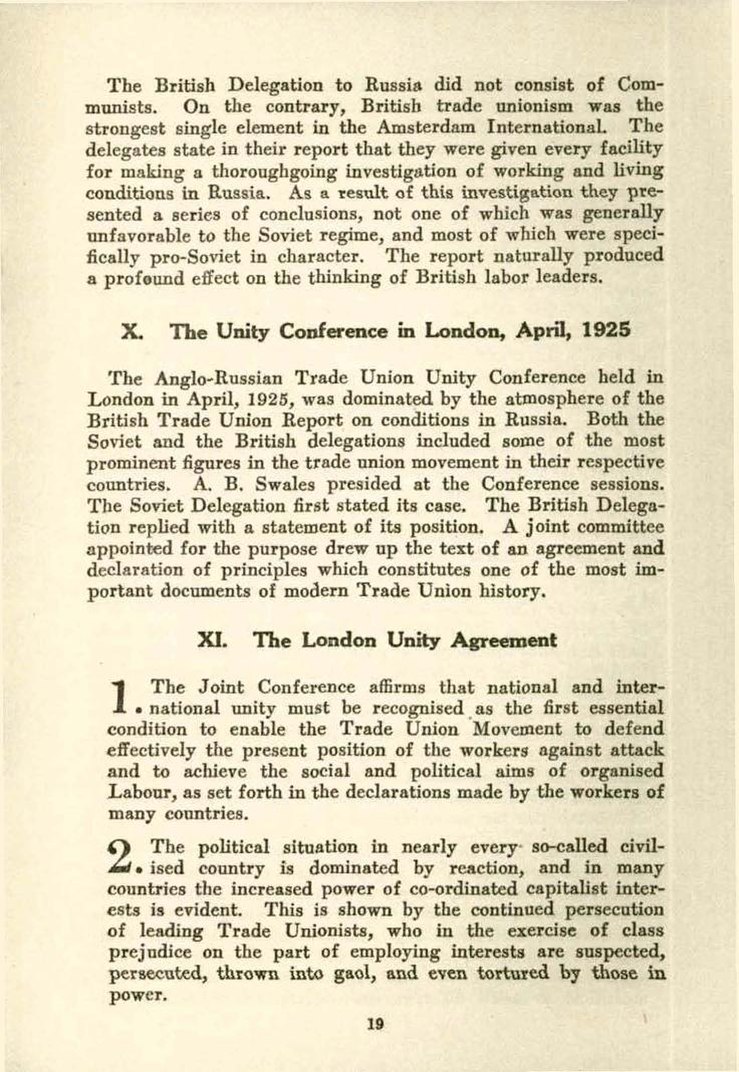The British Delegation to Russia did not consist of Communists. On the contrary, British trade unionism was the strongest single element in the Amsterdam International. The delegates state in their report that they were given every facility for making a thoroughgoing investigation of working and living conditions in Russia. As a result of this investigation they presented a series of conclusions, not one of which was generally unfavorable to the Soviet regime, and most of which were specifically pro-Soviet in character. The report naturally produced a profound effect on the thinking of British labor leaders.
X. The Unity Conference in London, April, 1925
The Anglo-Russian Trade Union Unity Conference held in London in April, 1925, was dominated by the atmosphere of the British Trade Union Report on conditions in Russia. Both the Soviet and the British delegations included some of the most prominent figures in the trade union movement in their respective countries. A, B, Swales presided at the Conference sessions. The Soviet Delegation first stated its case. The British Delegation replied with a statement of its position. A joint committee appointed for the purpose drew up the text of an agreement and declaration of principles which constitutes one of the most important documents of modern Trade Union history.
XI. The London Unity Agreement
1. The Joint Conference affirms that national and international unity must be recognised as the first essential condition to enable the Trade Union Movement to defend effectively the present position of the workers against attack and to achieve the social and political aims of organisedLabour, as set forth in the declarations made by the workers of many countries.
2. The political situation in nearly every so-called civilised country is dominated by reaction, and in many countries the increased power of co-ordinated capitalist interests is evident. This is shown by the continued persecution of leading Trade Unionists, who in the exercise of class prejudice on the part of employing interests are suspected, persecuted, thrown into gaol, and even tortured by those in power.
19
